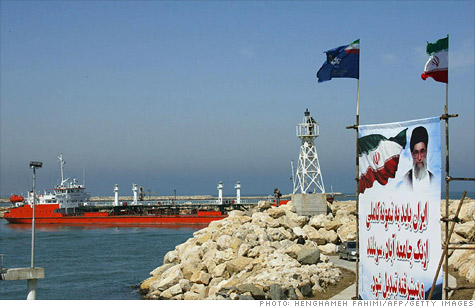
Abu Dhabi: Iran’s oil exports are expected to surge once sanctions are lifted in July, with forecasts showing an increase of 200,000 barrels per day by the end of the summer, and another 300,000 barrels per day by the end of the year.
According to Dr Fereidun Fesharaki, chairman of Facts Global Energy, an international energy consultancy, a further boost of 700,000 barrels per day is expected from Iran by June 2016.
Speaking at the 23rd annual Middle East Petroleum and Gas conference, Fesharaki said he expected condensate exports to rise by 200,000 barrels per day.
As for the impact this will have on the Middle East, he said Iran could potentially work on gas pipelines to the UAE, Oman, and Kuwait, and export liquid natural gas to the GCC.
During his speech at the two-day conference, which kicked off on Monday, Fesharaki discussed projections for oil prices, saying that there were two scenarios; the first that will see oil ranging between $50 and $80 over the next 10 years, while the other was between $40 and $60.
“Stability in the oil market is unnatural. If it happens, this means that someone is managing the market. By the end of June, prices may fall $15 and Opec [Organisation of Petroleum Exporting Countries] may meet and announce changes,” he said.
Fesharaki also discussed the emergence of the US as an energy superpower, saying that oil production in the US reached 4.5 million barrels per day in the last four to five years — a level that measures up with the entire Opec’s production.
This puts the US among the top three liquid natural gas exports by 2020, as the largest producer of condensates worldwide, and as an emerging ethane exporter.
Also attending the conference was Hatem Nuseibeh, president and chief representative of Total UAE, who said he expected gas to emerge as the second main energy source as oil maintains its position as the primary energy source.
Asked about the impact of low oil prices on Total, Nuseibeh said the company was able to adapt to lower prices, and that the long term outlook was more important.
“Profits go down with lower oil prices, but what’s important is that projects continue…Lower oil prices push companies to spend less and squeeze service companies, so the cost of energy is going to go down, which is a positive on the long-term,” he said.
No comments:
Post a Comment